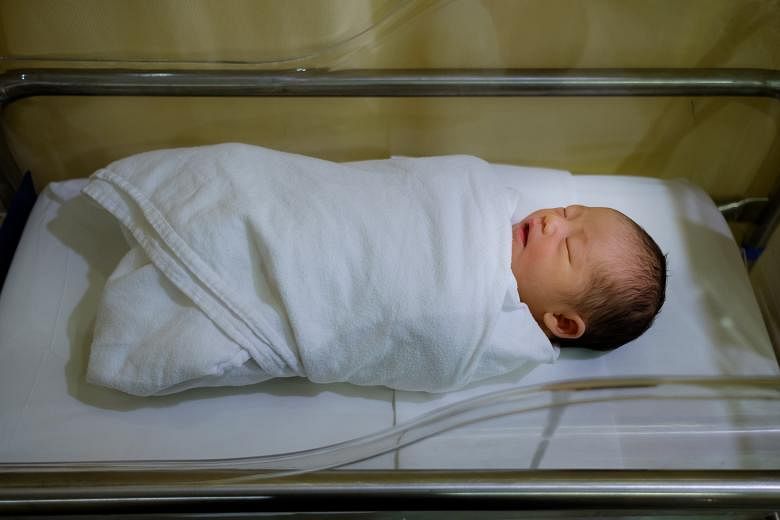SINGAPORE - Parents of newborns will be given 42 days to register their child's birth instead of the current 14 days as part of a new law passed on Tuesday (July 6) that also makes it mandatory for all births, deaths and stillbirths here to be reported to the authorities.
The new law will also streamline the reporting and registration process for births and deaths.
Deaths that take place in hospitals will be certified online by doctors and registered automatically.
For deaths at home, a relative who is present must report the death to a medical practitioner, who will conduct a home visit to examine the body and certify the cause of death online.
In either case, a relative will no longer need to bring the death certificate to a registration centre - such as a police post - to register the death, as it will be done automatically.
Digital birth and death certificates will also be made available for parents and next-of-kin to download.
Doing away with over-the-counter death registrations will save the public and the Immigration and Checkpoints Authority (ICA) about 18,000 hours a year, Minister of State for Home Affairs Muhammad Faishal Ibrahim told Parliament during the debate on the Registration of Births and Deaths Bill.
Besides streamlining processes, the new law that replaces the Registration of Births and Deaths Act enacted in 1937 makes it compulsory to report every birth, death and stillbirth in Singapore, including under special circumstances such as on a flight bound for Singapore.
Today, all hospital births - or children brought to the hospital within 24 hours of being born - are reported to the authorities.
It is not mandatory for births outside of hospitals to be reported.
When the law kicks in, births that occur outside of a hospital will need to be reported as soon as possible.
The parents of the child will need to go to the ICA to report the birth in person.
For deaths outside a hospital, the new law requires anyone who was present to report it to a doctor as soon as possible. This includes an occupier of the premises who knows of the death.
Such occupiers could include the management of a mall or the owner of an apartment, said Associate Professor Faishal.
Those who fail to do so can be fined up to $1,500 and jailed for up to a month.
Unnatural or violent deaths, or the death of an unknown person, must by law still be reported to the police.
The new law also grants the Registrar-General of Births and Deaths the power to register a birth if those responsible for the child do not do so, or if they do not provide complete particulars and are uncontactable.
In registering such a birth, the Registrar-General will give the child an identifier, or a single-word name.
An application can be made to change the name within seven years after the child's birth.
"It ensures that every child is given a legal identity and his or her presence is made known to other government agencies, to allow for government intervention or support if necessary," Prof Faishal said.
The registration of births of adopted children and children born out of wedlock will also be consolidated under the new Act.
For deaths, there will be no need for relatives to surrender a dead family member's NRIC for invalidation as this will be done automatically.
The family should, however, destroy the NRIC to ensure that it is not misused.
Prof Faishal said those who are not digitally savvy may request the doctor or hospital to print out the digital death certificate.
Responding to queries from MPs about costs, he said neither ICA nor the public hospitals will be charging any extra fees.
Private hospitals and general practitioners certifying cause of death will continue to use the same system as today, so their fees are also not expected to rise, he added.
Digital extracts of births, deaths, and stillbirths registered before the new law comes into force will also be introduced at a later stage, Prof Faishal said.
On whether the ICA will keep hard copy records of digital registrations, he said the agency will make backups of digital registration records at secured sites.
It will not keep paper records of birth and death registrations done digitally.


